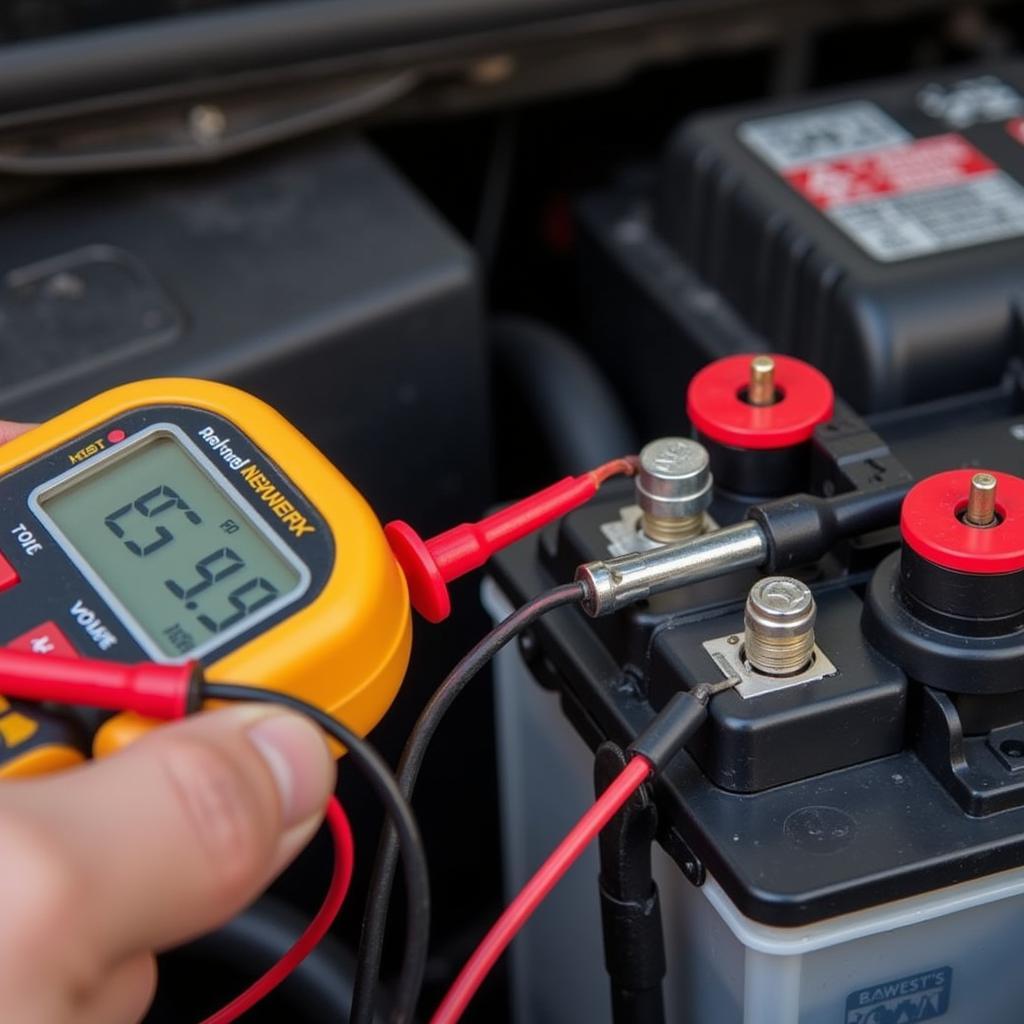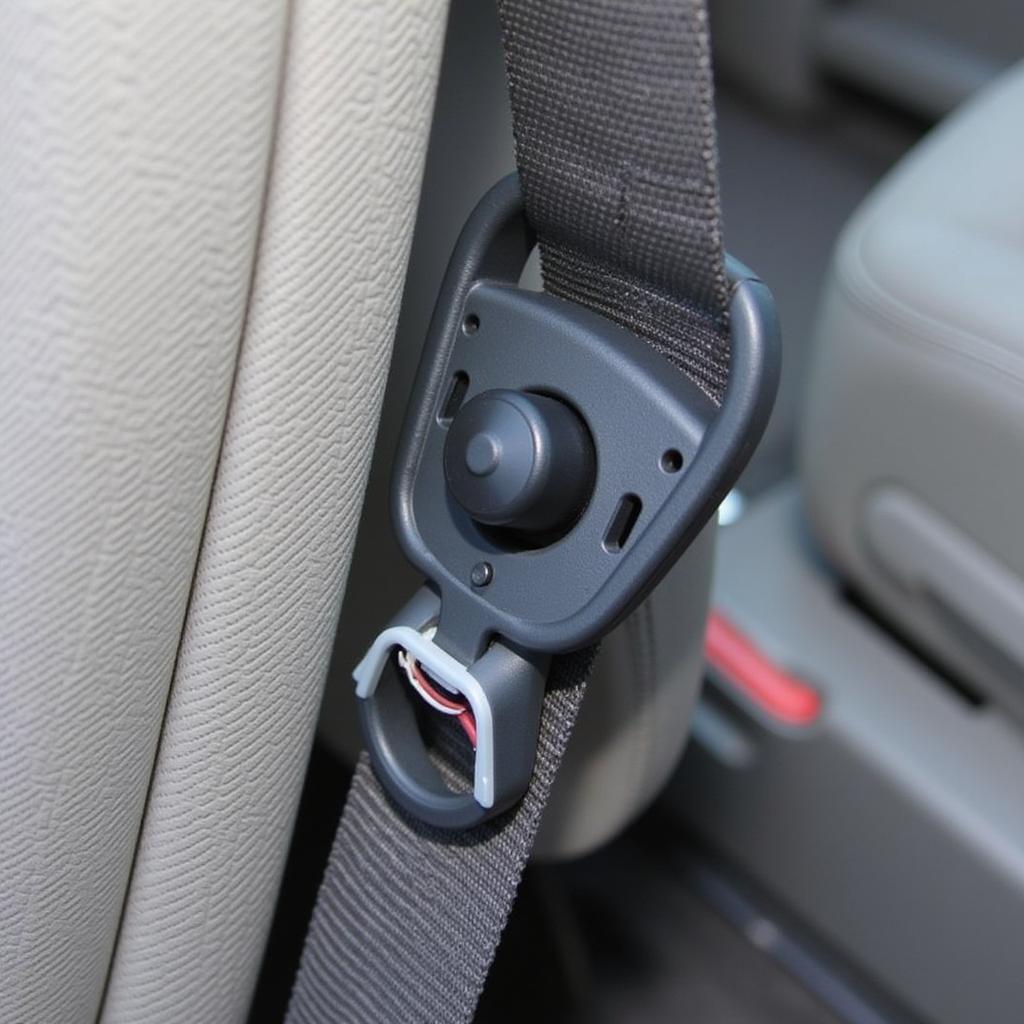Your car lights are on, but the engine refuses to turn over? This frustrating scenario is more common than you think. A vehicle that won’t start despite having functional lights can point to several issues, ranging from a simple dead battery to more complex electrical problems. This guide provides a comprehensive troubleshooting approach to help you diagnose and potentially fix the problem. We’ll explore the common causes, diagnostic steps, and potential solutions. car wont ignite
Common Reasons Why Your Car Lights Work But It Won’t Start
Several culprits can cause this issue, and understanding them is crucial for effective troubleshooting. One common reason is a weak or dying battery. While the battery might have enough juice to power the lights, it might not be strong enough to crank the starter motor. Another possibility is a faulty starter motor itself. Over time, the starter motor can wear out or become damaged, preventing the engine from turning over. Corrosion on battery terminals can also hinder the flow of electricity, leading to starting problems even with functioning lights. Furthermore, issues with the ignition system, such as a bad ignition switch or a faulty starter relay, can prevent the car from starting. Lastly, a problem with the car’s security system, like a malfunctioning immobilizer, can also be the cause.
Diagnosing the Problem: A Step-by-Step Guide
Start by checking the battery terminals for corrosion. Clean them with a wire brush and baking soda solution if necessary. Next, try jump-starting the car. If it starts with a jump, it confirms a weak battery. If jump-starting doesn’t work, test the starter motor by listening for a clicking sound when you turn the key. A clicking sound often indicates a faulty starter. Check the ignition switch by attempting to start the car in different gear positions (automatic transmission only). If the car starts in a different gear, it might indicate a problem with the neutral safety switch. Finally, check all fuses related to the starting system.
Testing the Battery and Charging System
You can use a multimeter to test the battery voltage. A fully charged battery should read around 12.6 volts. If the voltage is significantly lower, the battery is likely the problem. battery drain check
 Testing Car Battery with Multimeter when Car Lights are On But Wont Start
Testing Car Battery with Multimeter when Car Lights are On But Wont Start
Inspecting the Starter and Ignition System
A visual inspection of the starter can reveal signs of damage or corrosion. Similarly, checking the ignition switch for loose connections or damage can help pinpoint the issue. car battery discharge reasons Have you considered the impact of parasitic drain on your battery? Many modern cars have systems that draw power even when the car is off, and a faulty component can lead to excessive drain and starting problems.
“A common mistake people make is assuming the battery is the problem when the car won’t start,” says Alex Thompson, a seasoned automotive electrical engineer. “Often, the issue lies with the starter motor or other components in the starting system.”
My Car Lights are on but Wont Start: Solutions and Fixes
Once you’ve identified the problem, you can explore potential solutions. A dead battery needs replacement or charging. A faulty starter often requires replacement. Corroded battery terminals can be cleaned, while issues with the ignition system or security system may necessitate professional repair or replacement of specific components. causes of battery drain in car
When to Seek Professional Help
While some issues, like cleaning battery terminals or jump-starting a car, can be handled by car owners, others require professional expertise. If you suspect a problem with the starter motor, ignition system, or security system, seeking a professional mechanic is recommended. They have the necessary tools and knowledge to diagnose and repair these complex systems effectively.
Conclusion
Experiencing a situation where your car lights are on but the car won’t start can be frustrating. However, by following the troubleshooting steps outlined in this guide, you can often pinpoint the cause and potentially fix the problem yourself. Remember to prioritize safety and seek professional assistance when dealing with complex electrical or mechanical issues. Don’t let a simple starting problem ruin your day. Take charge and get your car back on the road. red battery symbol in car
“Regular maintenance is key to preventing car starting problems,” advises Sarah Miller, a certified automotive technician. “Simple checks like cleaning battery terminals and ensuring proper battery charging can go a long way in preventing future headaches.”
FAQ
-
Can a bad alternator cause my car lights to work but the car not start? While a bad alternator can eventually lead to a dead battery, it’s unlikely to be the immediate cause if your lights are still working.
-
What does it mean if my car makes a clicking sound when I try to start it? A clicking sound often indicates a problem with the starter motor or a weak battery.
-
How often should I check my car battery? It’s recommended to check your car battery at least twice a year, especially during extreme weather conditions.
-
Can I drive my car with a bad starter? No, you cannot drive your car with a bad starter. The starter is essential for starting the engine.
-
How long does a car battery usually last? A car battery typically lasts between 3 and 5 years, depending on usage and climate.
-
Is it safe to jump-start a car? Yes, it is generally safe to jump-start a car, but it’s important to follow the correct procedure to avoid any potential hazards.
-
What should I do if my car still won’t start after trying all the troubleshooting steps? If your car still won’t start after trying all the troubleshooting steps, it’s best to consult a qualified mechanic for further diagnosis and repair.

